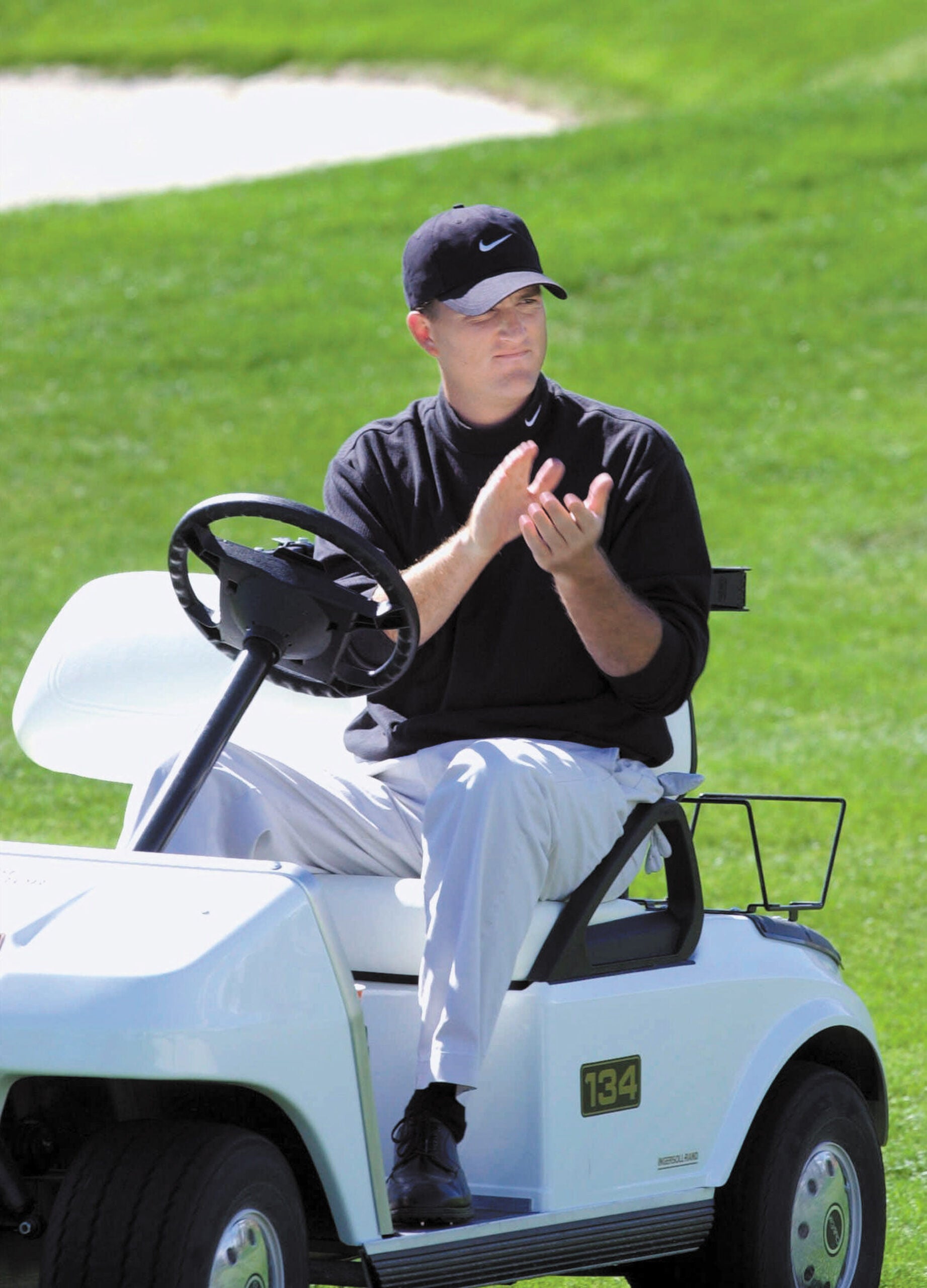Casey Martin’s legal battle to use a golf cart during PGA tournaments will not affect many other golfers. Yet the case could affect the lives of many disabled Americans, according to Assistant Professor Samuel Bagenstos ’93.
As part of a Supreme Court case heard on January, Bagenstos wrote the amici curiae brief in support of Martin on behalf of several organizations representing people with disabilities. On May 29, the Court ruled 7-2 in Martin’s favor.
In his brief, Bagenstos contended that Title III of the Americans with Disabilities Act (ADA), which protects any individual against disability-based discrimination “in the full and equal enjoyment of the goods, services, facilities, privileges, advantages” of a public accommodation, applies to Martin, who has a rare circulatory disease that limits his mobility. The statute provides an opportunity not only to view an event, but to compete for a prize, Bagenstos said.
“If you say that the PGA is excluded from complying with the statute with respect to golfers on the tour, then you have to say that a bingo parlor is excluded from the statute,” he said. “You have to say that casinos and racetracks are excluded from the statute, which we think is clearly contrary to the language of the statute and the intent of Congress.”
Yet H. Bartow Farr III, the PGA’s attorney, argued that the public accommodation provision applies to only spectators at a golf tournament. “The notion of full and equal enjoyment of goods and services . . . is quite different from the notion of being allowed to provide the goods and services,” he said. Furthermore, any top-level professional sport should be allowed to maintain the rules that measure excellence in a competition, Farr said. “Any attempt to adjust the rules to compensate for an individual player’s physical condition fundamentally alters the nature of that competition.”
According to Bagenstos, the rule that requires golfers to walk between holes on the PGA tour differs, for example, from the rule that requires a basketball hoop to be ten feet high. Citing studies indicating that walking does not affect the outcome of a match, Bagenstos said the PGA did not show that its rule is fundamental to the sport.
“Even in professional sports we think the statute requires some consideration of whether rules that have existed for a long time that operate to exclude people with disabilities are really serving the purposes they intend to serve,” he said. “If the PGA is going to impose a rule that has the effect of excluding someone with a disability, they have to at least be able to explain why imposing that rule connects to some purpose they have for testing some skill, and they have to show that connection is not merely speculative.”
Bagenstos said that if the PGA had prevailed, institutions beyond the world of professional sports could have claimed specialized knowledge of their rules and practices in an attempt to circumvent the ADA.
“Our fear was that that argument could be generalized to almost any case that gets brought under the Americans with Disabilities Act,” he said. “That in almost every case employers or places of public accommodation that carry on some business know more about their business than the judges do. And the whole purpose of the statute is to impose a check on employers’ ability to say we have complete managerial prerogative here.”
The case highlights the difficult issues surrounding the ADA, which often requires institutions to change their long-held practices, said Bagenstos.
“There’s not the kind of malicious prejudice against people with disabilities that there is against racial minorities. But there is to a large extent a kind of neglect, a failure to take account of the way people with disabilities of various kinds operate in the world,” he said. “And so the point of the statute is to say we don’t just look at intentional discriminatory practices, we also look at practices that have the effect of excluding people. And to see whether or not there’s a good reason for it.”
